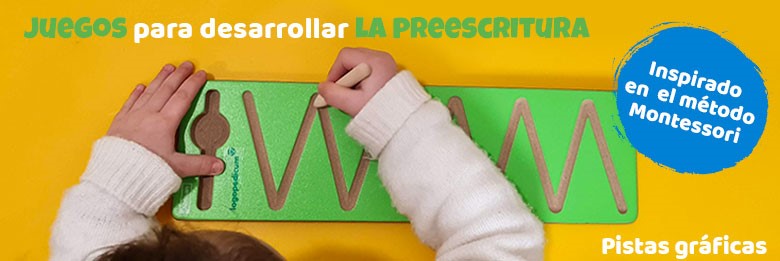
Aprender es modificar o adquirir nuevas habilidades, destrezas, conocimientos, conductas y valores mediante la experimentación, el estudio, la observación, el razonamiento o la instrucción. Múltiples y variados juegos disponibles hoy en día, desde los más clásicos hasta los más innovadores, pueden ser grandes herramientas para construir una variedad de aprendizajes: lectoescritura, matemáticas, razonamiento y resolución de problemas, etc. aportando motivación e interés a los jugadores. Más allá de la estimulación de las inteligencias múltiples, fomentaremos la autoestima, incentivaremos la cooperación y el trabajo en equipo y mejoraremos el comportamiento y la actitud, entre otros muchos aspectos.
 Auditory Memory Caterpillar
29,90 € (VAT not included)
Auditory Memory Caterpillar
29,90 € (VAT not included)
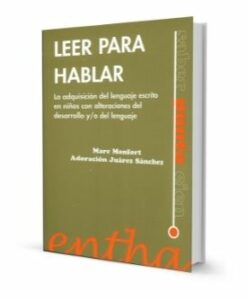 Leer para hablar
12,50 € (VAT not included)
Leer para hablar
12,50 € (VAT not included)
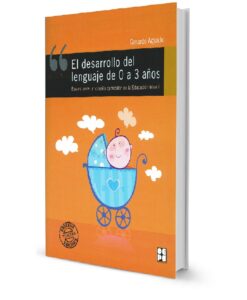 El Desarrollo del Lenguaje de 0 a 3 Años. Bases para un diseño curricular en la Educación Infantil
25,95 € (VAT not included)
El Desarrollo del Lenguaje de 0 a 3 Años. Bases para un diseño curricular en la Educación Infantil
25,95 € (VAT not included)
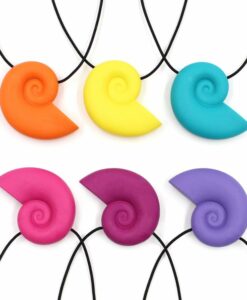 Teething necklace - Sea Snail
14,50 € (VAT not included)
Teething necklace - Sea Snail
14,50 € (VAT not included)
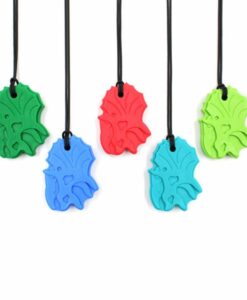 Teething Necklace - Triceratops
14,50 € (VAT not included)
Teething Necklace - Triceratops
14,50 € (VAT not included)
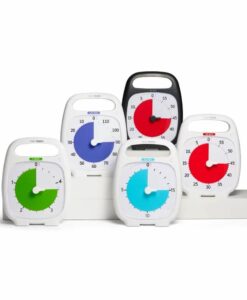 Time Timer Plus
39,90 € (VAT not included)
Time Timer Plus
39,90 € (VAT not included)
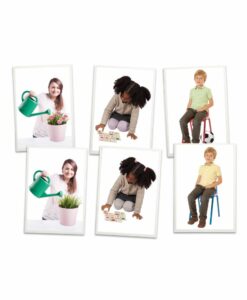 Search for differences
23,60 € (VAT not included)
Search for differences
23,60 € (VAT not included)
Showing 37–68 of 68 resultsSorted by latest
No account yet?
Create an AccountFun flutes with heads of different funny animals that through its movement allows to work the blow and get a variety of sounds.
https://logopedicum.com/wp-content/uploads/2015/03/flauta-animal-1-247x300.jpg 4.72 instock Auditory perceptionBreathingHearing, Speech, and VoiceOROFACIAL MYOLOGY 0 0.00 0 https://logopedicum.com/wp-content/uploads/2015/03/flauta-animal-1-247x300.jpg 22422816223149 4.72 3.90 0.00 0.00 2015-03-18T16:34:55+01:00From texts read by the adult, teacher... the children will tell the story heard by manipulating the characters and places in the house to facilitate the oral reproduction of the story, using the appropriate time markers. The educational guide offers many progressive scenarios varying the number of characters, places and actions.
It is a directed workshop designed to encourage listening and language situations. The manipulation of the material allows students to understand and use familiar vocabulary from home, listen and then construct sentences, including the verbal concepts of time, etc.
It aims to:
A rigid plastic object, similar to a telephone, which allows amplifying oral productions and working on listening, auditory attention, articulatory precision, speech rhythm, etc.
[/vc_column_text][/vc_column][/vc_row][vc_row][vc_column][woodmart_title woodmart_css_id="6453b4d1f0c87" title="BLOG | MUNDO LOGOPEDICUM" woodmart_empty_space="" responsive_spacing="eyJwYXJhbV90eXBlIjoid29vZG1hcnRfcmVzcG9uc2l2ZV9zcGFjaW5nIiwic2VsZWN0b3JfaWQiOiI2NDUzYjRkMWYwYzg3Iiwic2hvcnRjb2RlIjoid29vZG1hcnRfdGl0bGUiLCJkYXRhIjp7InRhYmxldCI6e30sIm1vYmlsZSI6e319fQ=="][/vc_column][/vc_row][vc_row][vc_column][vc_column_text woodmart_inline="no" text_larger="no"]https://mundologopedicum.com/ideas-practicas/aprende-a-escuchar/[/vc_column_text][/vc_column][/vc_row] https://logopedicum.com/wp-content/uploads/2014/01/toobaloo-247x300.jpg 11.98 instock Hearing, Speech, and VoiceAuditory perceptionSpeak and voice 0 0.00 0 https://logopedicum.com/wp-content/uploads/2014/01/toobaloo-247x300.jpg 23116222413449 11.98 9.90 0.00 0.00 2014-01-19T12:36:11+01:00El Test de Comprensión de Estructuras Gramaticales, CEG, es un instrumento diseñado para evaluar la comprensión gramatical correspondiente a los niños de 4 a 11 años de edad. Se atiene al paradigma de elección múltiple, consistente en elegir entre cuatro dibujos el que corresponde a la oración leída por el examinador. No requiere ningún tipo de respuesta verbal, por lo que es aplicable en los casos en los que el desarrollo del lenguaje expresivo esté afectado de forma importante.
De rápida y sencilla aplicación y corrección, el CEG permite tanto una interpretación cuantitativa mediante el recuento de elementos acertados, a la vez que una valoración cualitativa derivada del análisis de los modelos de error y de la elección de distractores.
Constituye un marco de referencia para psicólogos, logopedas e investigadores del lenguaje infantil interesados tanto en la evaluación del desarrollo normal del lenguaje como en la comprensión de los trastornos que afectan a este desarrollo, pero también casos de afasia, TDL (antes TEL), trastornos de aprendizaje, deficiencias auditivas, etc.
Incluye Manual, 25 Hojas de respuestas autocorregibles, Cuaderno de láminas. https://logopedicum.com/wp-content/uploads/2022/10/test-ceg-247x300.jpg 143.62 instock TESTS 0 0.00 0 https://logopedicum.com/wp-content/uploads/2022/10/test-ceg-247x300.jpg 1571643251221 143.62 138.10 0.00 0.00 2022-10-10T17:52:17+02:00Memory game for values education: gender equality, tolerance, respect, good behavior, etc. With fun full-color illustrations and attractive photographs, it allows us to play and sensitize children to diversity and inclusion, promoting values of equality, integration and acceptance. Teaching and living with these values from an early age helps us to achieve a more sensitive, inclusive society with fewer barriers.
Set consists of 1 tray with lid, 16 lids, 4 tokens and 1 booklet. Recommended for ages 4 and up. https://logopedicum.com/wp-content/uploads/2021/10/memo-game-valores-247x300.jpg 23.90 instock 3 – 6 years6 – 9 yearsAGEAreas of DevelopmentBoard gamesFamily gamesGAME TYPEGAMES AND TOYSInclusive toysMemory and attentionMemory gamesTYPE OF TOY 0 0.00 0 https://logopedicum.com/wp-content/uploads/2021/10/memo-game-valores-247x300.jpg 32224233128145 23.90 19.75 0.00 0.00 2021-12-02T19:01:10+01:00Since its first publication in 1967, the Renfrew Action Picture Test has been an assessment tool used by many professionals involved in the speech and language development of children between 3.0 and 8.5 years of age.
Widely used by speech therapists, among other professionals, the test covers words used to convey information (i.e. nouns, verbs, prepositions); present, past and future tenses; irregular forms of plural and past tenses; simple and complex sentence construction; and passive voice. The test provides an information and grammar score that can be compared with the UK school population.
This fifth edition has been completely updated, including revised scoring guidelines, modernized imaging and, through an extensive national program, completely re-standardized for a modern school population, making RAPT a reliable front-line tool in speech and language assessment.
Designed for use in educational settings and/or therapy contexts under adult supervision.
Table of Contents
10 illustrated cards depicting a variety of everyday scenarios.
Instruction leaflet providing guidance on administration.
Scoring guides.
Scoring form.
https://logopedicum.com/wp-content/uploads/2021/01/Action-picture-test-247x300.jpg 72.70 instock LANGUAGEMorphology and syntaxNarrative discourseTESTS 0 0.00 0 https://logopedicum.com/wp-content/uploads/2021/01/Action-picture-test-247x300.jpg 3222123122620 72.70 69.90 0.00 0.00 2021-01-26T09:18:07+01:00Who can better remember where the couples are, the children or the adults? With this version of the memo game, consisting of 32 wooden cards to make 16 pairs of images, you can discover the world of jobs and professions and their working tools.
Objective of the memo game:
For each work picture on the wooden cards there is a card with the appropriate work tool on it. Each player must collect as many pairs as possible. The winner is the player who has collected the most pairs.
Preparation for the game The cards will be placed on the table shuffled and with the images face down so that no one can remember where each image is located.
Rules of the game The pairs must be found. The first player turns over two small wooden plates, shows them to the other players and puts them back in place with the image facing down. All the players will try to remember where these cards are. The players take turns in a clockwise direction. When a player uncovers a pair, he/she can keep it and uncover two other cards. The game can also be played with adults. The winner is the one who has collected the most pairs of drawings at the end.
Have fun playing the memo game!